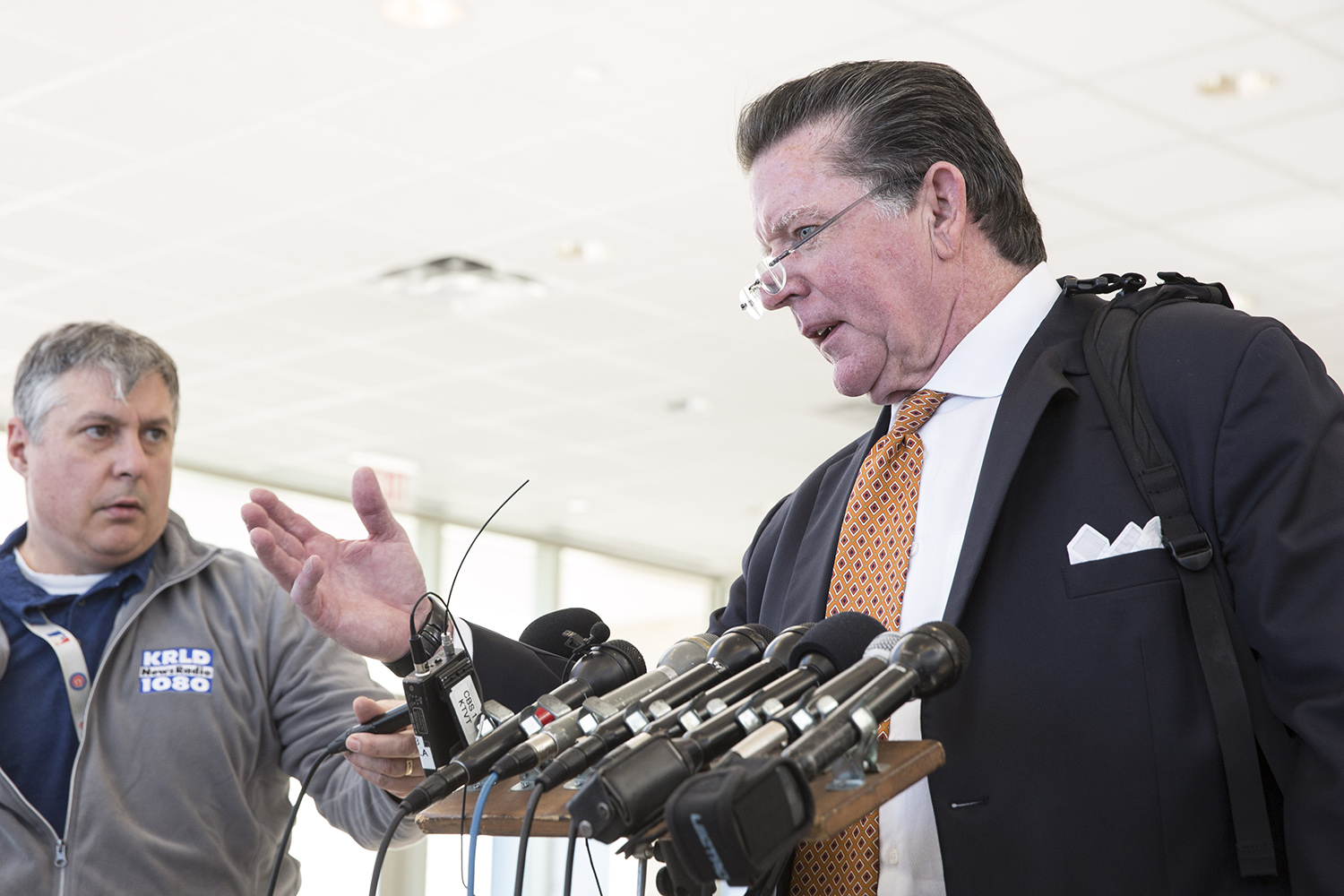Prosecutors argue Ken Paxton's trial should leave Collin County
/https://static.texastribune.org/media/images/2017/01/12/7C2A6012.jpg)
Editor's note: This story has been updated throughout.
MCKINNEY — Prosecutors pursuing securities fraud charges against Texas Attorney General Ken Paxton sought to show Thursday that his trial should be moved out of Collin County, where they believe his team has tainted the jury pool.
Presiding Judge George Gallagher did not immediately rule on the issue but said he would like to at least try to pick a jury in Collin County. He appeared to leave open the possibility of a venue change.
Paxton is accused of misleading investors in a company before his time as the state's top lawyer. A criminal trial is scheduled to begin May 1; he is fighting similar civil charges at the federal level.
The prosecutors also argued Thursday that there should be two trials, with the first focusing on the lesser charge that Paxton failed to register with the state securities board. The second trial would address the more serious allegations of securities fraud. That proposal drew opposition from Paxton's team, which has already chafed at the amount of taxpayers resources being consumed by the case.
Asked after the hearing why two trials are necessary, prosecutor Kent Schaffer said the securities fraud charges are likely to take much more time to try. “It’s a much more complex case, requires a lot more evidence, a lot more witnesses,” Schaffer told reporters.
Paxton lawyer Dan Cogdell was visibly frustrated in court when the issue came up. There appeared to have been a miscommunication between him and Paxton prosecutor Brian Wice about the trial structure.

The bulk of Thursday’s hearing focused on the prosecutors’ argument that Paxton’s allies have played too big a role in orchestrating pretrial media coverage in North Texas, making it impossible for the prosecutors to get a fair trial in Collin County.
The prosecutors called three witnesses to help make their case, including a Dallas TV reporter who recently conducted an interview with former U.S. Sen. Rick Santorum, R-Pa., in which Santorum described the case as a political vendetta against Paxton. The reporter, J.D. Miles, said Paxton ally Jeff Blackard helped arrange the interview, but “I’m not part of a conspiracy, and I wouldn’t know if there is one.”
The prosecution’s second witness was Wayne Dolcefino, a former TV news star who now runs a consulting firm. He testified that he gave the website Watchdog.org leaked records from the Texas Rangers regarding the Paxton case.
Dolcefino has ties to Cogdell, Paxton's attorney, whom he said has paid him several thousand dollars for a “research project.” Dolcefino insisted his work for Paxton’s lawyers did not involve the media and said he acted on his own when he leaked the records. He said he did it out of dissatisfaction with coverage of the Paxton case thus far and a desire to shine more light on a situation where taxpayer dollars are at stake.
“I did what I did, and I didn’t get paid for it,” Dolcefino said on the stand on Thursday, referring to giving the documents to Watchdog.org.
The third witness, Tom Dailey, is a business manager for Cumulus Media in Dallas, which handled a radio ad buy last year that was done under Watchdog.org’s name. The ads cast doubt on the case against Paxton and promoted Watchdog.org’s work.
The prosecutors asked Dailey to explain how the ads ran during popular times of day and reached Collin County listeners. Cogdell argued the ads will be almost five months old by the time jury selection begins and got Dailey to testify that he was unaware of a connection between the ad buy and Paxton himself.
The hearing Thursday at the Collin County courthouse also offered another twist. Gallagher revealed he had recently been given a sealed envelope containing notes from the grand jurors who indicted Paxton in 2015. Gallagher, who is from Tarrant County, was not the original judge in the case — he stepped in after Collin County’s Chris Oldner recused himself in the wake of the indictment.
Paxton’s lawyers pushed Thursday to get more information about the notes, saying they may be relevant to issues the attorney general’s legal team has previously raised about the grand jury process. Gallagher responded that he would fully review the notes himself and report back on their content.
Read more on Ken Paxton's legal challenges:
- In less than three months, Texans will watch as their attorney general stands trial on securities fraud charges, facing up to 99 years in prison. Yet Ken Paxton's Republican base is standing by him.
Information about the authors
Learn about The Texas Tribune’s policies, including our partnership with The Trust Project to increase transparency in news.
/https://static.texastribune.org/media/profiles/Patrick_Svitek_Aug_2021TT_03.jpg)